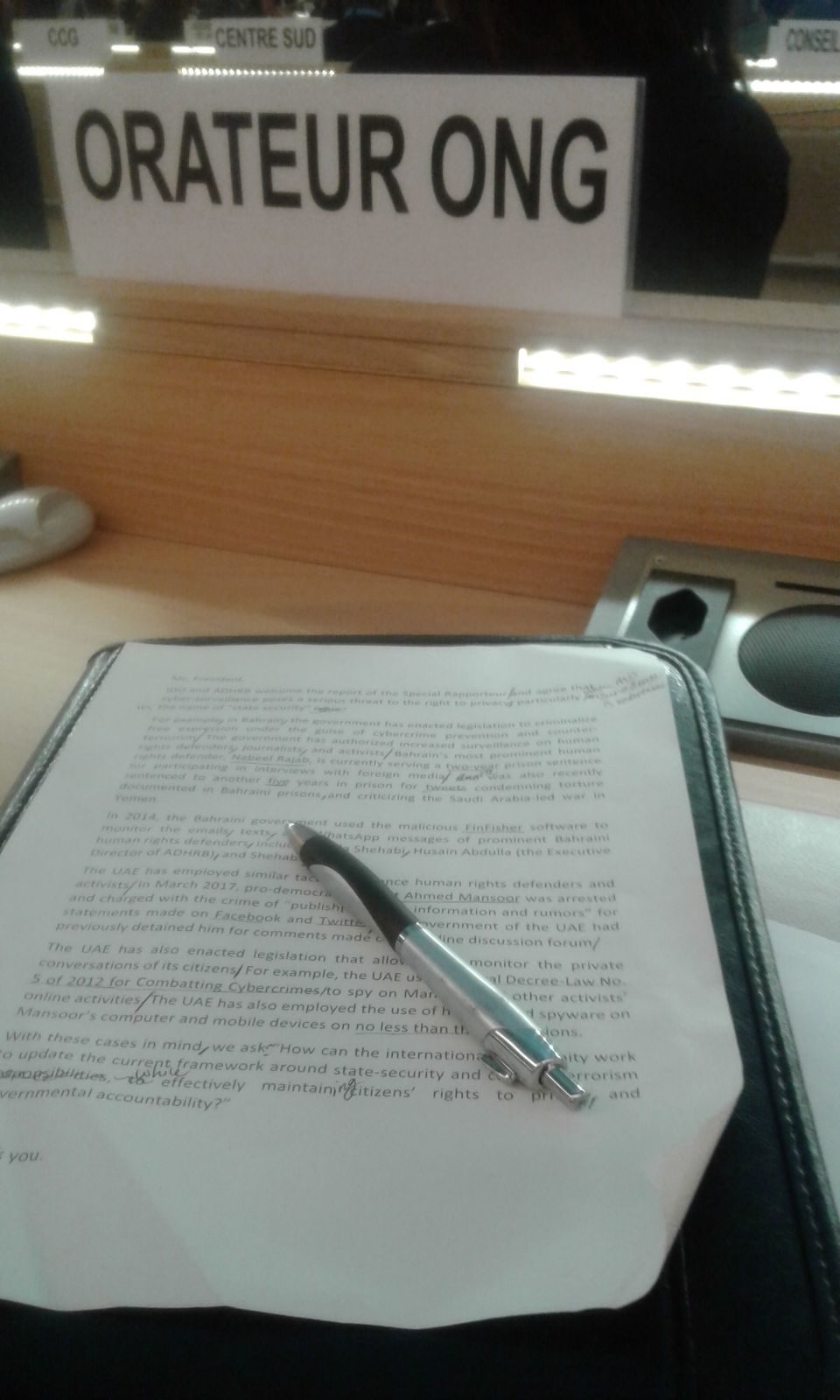On Tuesday 6 March, at the 37th session of the Human Rights Council, ADHRB’s legal fellow, Bridget Quitter delivered an intervention during the Clustered Interactive Dialogue with the Special Rapporteurs on privacy and sale of children. In her intervention, she raised the Bahraini and Emirati government’s use of cyber technology to spy on their citizens, in particular human rights and civil society activists. Click here for a PDF of her intervention.
Mr. President,
IDO and ADHRB welcome the report of the Special Rapporteur and agree that cyber-surveillance poses a serious threat to the right to privacy, particularly in the name of “state security” issue.
For example, in Bahrain, the government has enacted legislation to criminalize free expression under the guise of cybercrime prevention and counter-terrorism. The government has authorized increased surveillance on human rights defenders, journalists, and activists. Bahrain’s most prominent human rights defender, Nabeel Rajab, is currently serving a two-year prison sentence for participating in interviews with foreign media, and was also recently sentenced to another five years in prison for tweets condemning torture documented in Bahraini prisons and criticizing the Saudi Arabia-led war in Yemen.
In 2014, the Bahraini government used the malicious FinFisher software to monitor the emails, texts, and WhatsApp messages of prominent Bahraini human rights defenders, including Ala’a Shehabi, Husain Abdulla (the Executive Director of ADHRB), and Shehab Hashem.
The UAE has employed similar tactics to silence human rights defenders and activists. In March 2017, pro-democracy activist Ahmed Mansoor was arrested and charged with the crime of “publish[ing] false information and rumors” for statements made on Facebook and Twitter. The government of the UAE had previously detained him for comments made on an online discussion forum.
The UAE has also enacted legislation that allows it to monitor the private conversations of its citizens. For example, the UAE used Federal Decree-Law No. 5 of 2012 for Combatting Cybercrimes to spy on Mansoor and other activists’ online activities. The UAE has also employed the use of hacking and spyware on Mansoor’s computer and mobile devices on no less than three occasions.
With these cases in mind, we ask “How can the international community work to update the current framework around state-security and counter-terrorism responsibilities, to effectively maintain citizens’ rights to privacy and governmental accountability?”
Thank you.





